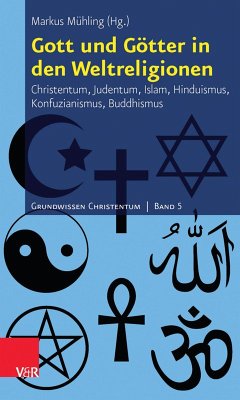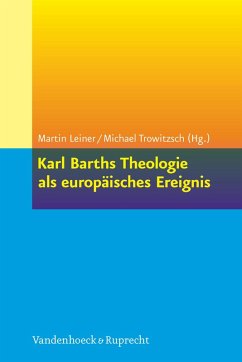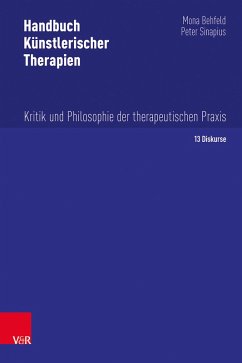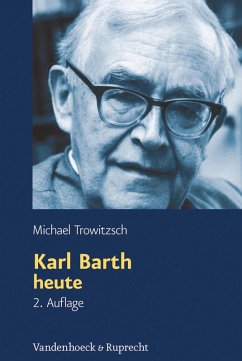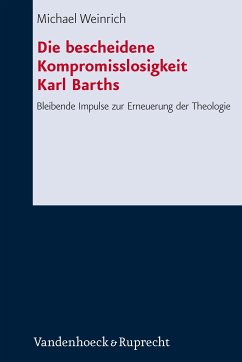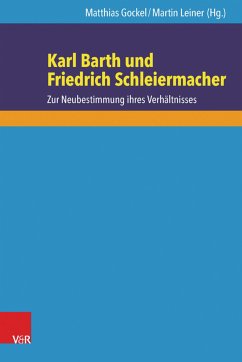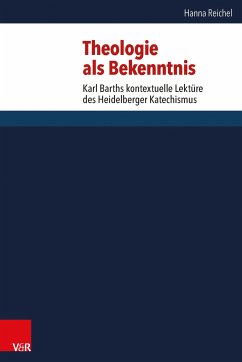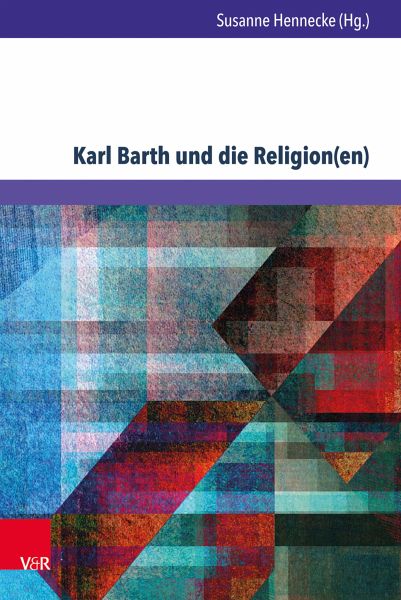
Karl Barth und die Religion(en) (eBook, PDF)
Erkundungen in den Weltreligionen und der Ökumene
Redaktion: Hennecke, Susanne

PAYBACK Punkte
0 °P sammeln!
Karl Barth (1886-1968) gilt wegen seiner kritischen Religionstheorie als Vertreter einer dialogunfähigen Theologie, die das Gespräch mit der Moderne und auch mit den nicht-christlichen Religionen behindere. Trotz allem haben VertreterInnen nicht-christlicher Religionen und der Ökumene ein starkes Interesse an Barths Theologie. Der vorliegende Band bietet eine Grundlagenreflexion, bei der Barths kritische Religionstheorie in Hinsicht auf den zeitgenössischen Religionspluralismus reflektiert wird. Darüber hinaus stellen Vertreter von fünf führenden religiösen Traditionen sowohl Barths Re...
Karl Barth (1886-1968) gilt wegen seiner kritischen Religionstheorie als Vertreter einer dialogunfähigen Theologie, die das Gespräch mit der Moderne und auch mit den nicht-christlichen Religionen behindere. Trotz allem haben VertreterInnen nicht-christlicher Religionen und der Ökumene ein starkes Interesse an Barths Theologie. Der vorliegende Band bietet eine Grundlagenreflexion, bei der Barths kritische Religionstheorie in Hinsicht auf den zeitgenössischen Religionspluralismus reflektiert wird. Darüber hinaus stellen Vertreter von fünf führenden religiösen Traditionen sowohl Barths Rezeption der betreffenden Religion als auch ihre eigene Wahrnehmung seiner Theologie vor. Der Band schließt mit einer Untersuchung zur Bedeutung von Barths Religionstheorie und -kritik für den ökumenischen Dialog. Due to his critical theory on religion Karl Barth (1886-1968) is considered as a representative of a theology which is incapable of dialogue and which hinders the debate both with the modern and with non-Christian religions. However, representatives of non-Christian religions and ecumenism are highly interested in Barth's theology. The present volume offers a fundamental reflection in which Barth's critical theory on religion is analysed on the basis of contemporary religious pluralism. Furthermore, representatives of five leading religious traditions present Barth's reception of their religion and their own perception of his theology. The volume terminates with an analysis of the meaning of Barth's theory on religion and his criticism for the ecumenical dialogue.
Dieser Download kann aus rechtlichen Gründen nur mit Rechnungsadresse in A, B, BG, CY, CZ, D, DK, EW, E, FIN, F, GR, H, IRL, I, LT, L, LR, M, NL, PL, P, R, S, SLO, SK ausgeliefert werden.




